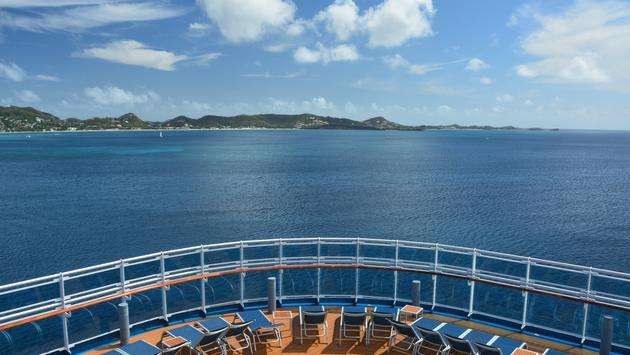Royal Caribbean Group today announced the results of an independent study, conducted in collaboration with the University of Nebraska Medical Center (UNMC), on the diffusion of aerosolized particles through a cruise ship’s heating, ventilation and air conditioning (HVAC) system.

With the support of the Healthy Sail Panel —a group of world-class experts brought together by Royal Caribbean Group and Norwegian Cruise Line Holdings, Royal Caribbean Group engaged UNMC and the University of Nebraska’s National Strategic Research Institute (NSRI)—to conduct this research.
The study was conducted by UNMC and NSRI scientists in July 2020 aboard Oasis of the Seas in order to gain an in-depth understanding of the role that HVAC systems play in transferring airborne particles around cruise ships. Specifically, it explored the efficacy and efficiency of onboard air management—such as supply, ventilation and filtration—and analyzed the flow of air across various areas of the ship, such as guest staterooms, crew accommodations, lounges and other public areas.
A team of five medical scientists specializing in bioaerosols found that the transmission of airborne particles passing through the ventilation system between onboard areas to be altogether undetectable, both in the air and on surfaces in most test cases.
The research was initially undertaken to help inform the Healthy Sail Panel’s comprehensive recommendations for industry best practices to protect cruise ships’ guests, crew and the communities they visit, which was submitted to the CDC in September of last year.
Ever at the forefront of implementing the industry’s latest innovations, Royal Caribbean Group’s existing HVAC systems were already robust and efficient enough to provide exceptional filtration of incoming and outgoing air, continual fresh-air intake and maximum ventilation throughout its vessels. Still, based on the UNMC study’s findings and Healthy Sail Panel recommendations, Royal Caribbean Group is adopting new practices and putting in added layers of protection to further minimize the possibility of aerosolized particles’ spread.
Going forward, shipboard settings will be adjusted to allow for the maximum number of air exchanges per hour and systemwide upgrades will include MERV 13 filters to add yet another layer of protection. Already, Royal Caribbean Group’s medical facilities have been equipped with independent ventilation systems, complete with hospital-grade HEPA filters.
“Our existing HVAC system is designed with several layers to continuously bring in the ocean air and filter it multiple times before it reaches our guests and crew. We are glad to see the study conclude that our robust system is effective in reducing transmission,” said Patrik Dahlgren, Royal Caribbean Group’s senior vice president of Global Marine Operations and a member of the Healthy Sail Panel. “By taking a scientific approach and implementing recommendations made by the experts at University of Nebraska Medical Center and the National Strategic Research Institute, we’ve created an environment that is even safer for our guests and crew. And we’ve done so without compromising their comfort—which is always front of mind because this is our guests’ vacations and our crew’s home at sea.”
An overview of the UNMC study commissioned by Royal Caribbean Group, as well as details on the workings of the onboard HVAC system, can be found here .
For more information, visit royalcaribbeangroup.com .

Leave a Reply